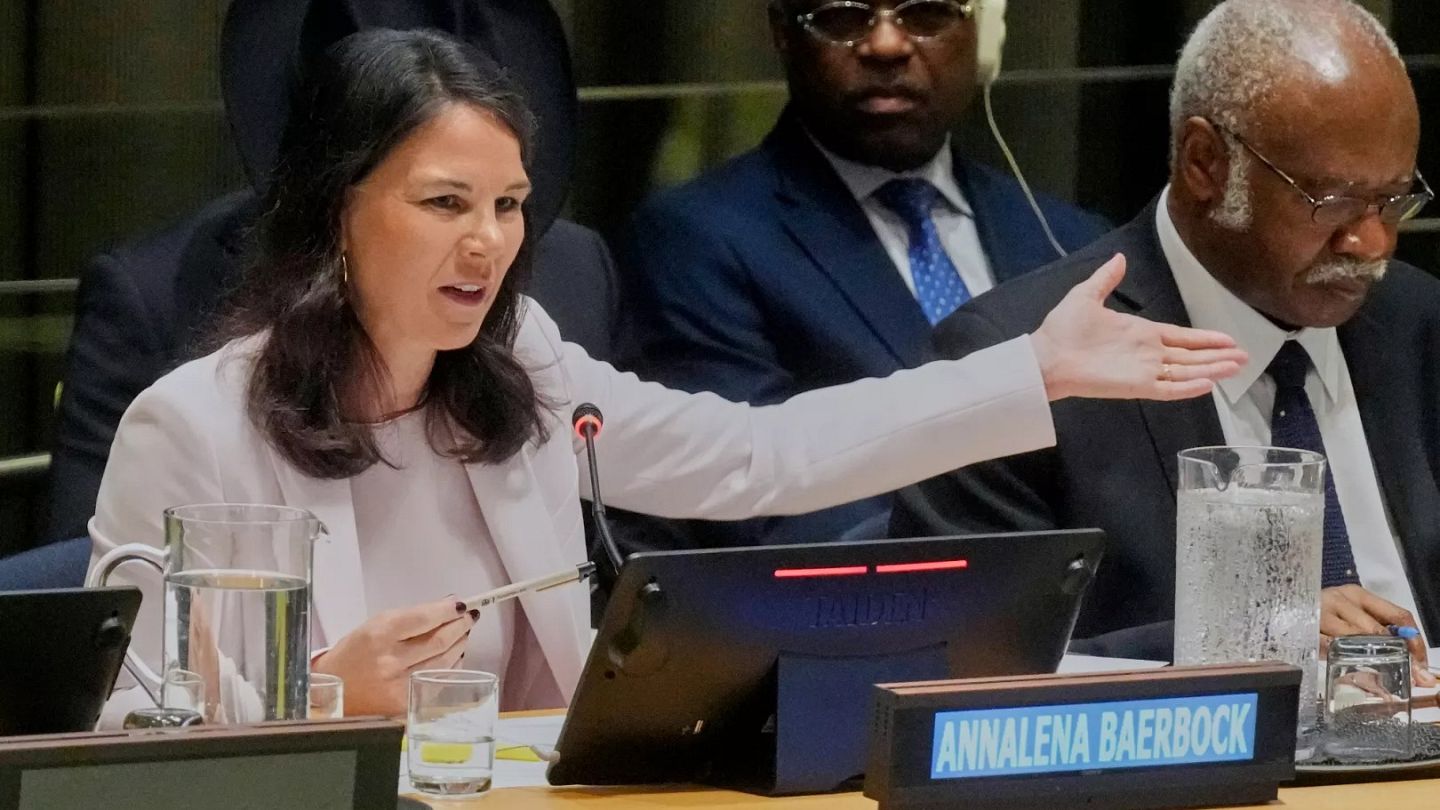Germany's Baerbock appointed president of United Nations General Assembly
The former German foreign minister will be the president of the United Nation's General Assembly for a period of one year — despite backlash in Berlin.
Germany's former foreign minister Annalena Baerbock was appointed president of the United Nations General Assembly on Monday, following an election in which she ran unopposed.Baerbock, who was elected to the position with a simple majority, will take the top job at the assembly — a role of primarily ceremonial significance that largely involves organising plenary sessions among the body's 193 represented countries.Russia, which was opposed to Baerbock's nomination, asked for a secret ballot on Monday, but the vote was considered a formality in the run-up to her election.She will be inaugurated on 9 September, shortly before the UN General Assembly holds its general debate, and will have the post for one year.Germany, tasked with nominating a candidate for the 2025–2026 session, selected Baerbock over Helga Schmid, a seasoned diplomat who had initially been considered for the role.Her nomination over Schmid sparked controversy within Germany, most notably from the former chairman of the Munich Security Conference Christoph Heusgen, who called her selection an "affront.""It is outrageous to replace the best and most internationally experienced German diplomat with an outdated model," Heusgen told the domestic press.Former German Foreign Minister Sigmar Gabriel also criticised Baerbock and highlighted Schmid's achievements. "Ms Baerbock can learn a lot from her," Gabriel said.The German government defended Baerbock's nomination, with Foreign Ministry spokesperson Steffen Hebestreit calling her "highly qualified for the job".Baerbock herself responded by arguing that her appointment was "analogous to many predecessors who were also former foreign ministers or former prime ministers."Baerbock also said the decision to nominate her was made jointly with Schmid. Schmid has not publicly commented on the decision.During an informal dialogue held with the UN General Assembly's member states, Baerbock said she aimed to lead as "a unifier — with an open ear and an open door."At 44 years old, she will be the fifth woman to lead the UN's main policymaking organ, which turns 80 this year."The United Nations is needed more than ever before," the former Green politician said, adding that she would emphasise adapting the UN to 21st-century challenges, including reforming its structure to cut costs and improve efficiency.Baerbock also said she would place strong emphasis on ensuring that the perspectives of all regions and groups are heard in the reform process.Baerbock, who pioneered a "feminist foreign policy" as Germany’s foreign minister, said her other top priorities at the UN would include giving special attention to the climate crisis and ensuring that the organisation is truly inclusive.“Our work does not end in New York, Geneva, Nairobi or Bonn. But we need to bring our discussions and outreach closer to the people,” she said.Another Foreign Ministry spokesperson Sebastian Fischer said he hoped Baerbock's nomination would enhance Germany's overall influence in the UN Security Council.It is clear that the UN as a whole has "run into difficult waters" in recent years, Fischer said. He added that Baerbock's candidacy "underlines at a high political level Germany's political commitment to the United Nations and our willingness to assume special responsibility for this multilateral system in difficult times."


